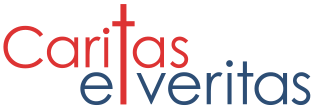statement of ethics
The journal Caritas et Veritas publishes original scientific studies, which have to undergo a standard anonymous peer review. The journal is indexed in the Scopus database and it is on the current list of non-impact peer-reviewed in the Czech Republic. The journal publishes also interviews with specialists, reviews of monographies and other articles of popular and informational style which are approved by editorial board.
The journal Caritas et Veritas is not a predatory journal.
The following are the standards of expected ethical behaviour for all parties involved in publishing in journal Caritas et veritas: the author, the journal editor and editorial board, the peer reviewer and the publisher. These guidelines are based on COPE’s Best Practice Guidelines for Journal Editors.
Duties of the editor and editorial board
Publication decisions
The editor of the journal Caritas et veritas is responsible for deciding which of the articles submitted to the journal should be published. The editor decides on the base of doubleblind peer reviews. The editor is guided by the policies of the journal’s editorial board and constrained by such legal requirements as shall then be in force regarding libel, copyright infringement and plagiarism. The editor may consult with editorial board or reviewers in decision making.
Fair play
The editor evaluates manuscripts for their intellectual content without regard to race, gender, sexual orientation, religious belief, ethnic origin, citizenship, or political philosophy of the authors.
Confidentiality
The editor and any editorial staff must not disclose any information about a submitted manuscript to anyone other than the corresponding author, reviewers, potential reviewers, other editorial advisers, and the publisher, as appropriate.
Duties of Reviewers
Contribution to Editorial Decisions
Peer review assists the editor in making editorial decisions and through the editorial communications with the author may also assist the author in improving the paper.
Promptness
Any selected referee who feels unqualified to review the research reported in a manuscript or knows that its prompt review will be impossible should notify the editor and excuse themselves from the review process.
Confidentiality
Any manuscripts received for review must be treated as confidential documents. They must not be shown to or discussed with others, except as authorized by the editor.
Standards of Objectivity
Reviews should be conducted objectively. Personal criticism of the author is inappropriate. Referees should express their views clearly with supporting arguments.
Disclosure and Conflict of Interest
Privileged information or ideas obtained through peer review must be kept confidential and not used for personal advantage. Reviewers should not consider manuscripts in which they have conflicts of interest resulting from competitive, collaborative, or other relationships or connections with any of the authors, companies, or institutions connected to the papers.
Duties of Authors
Reporting standards
The authors of reports of original research should present an accurate account of the work performed as well as an objective discussion of its significance. Underlying data should be represented accurately in the paper. A paper should contain sufficient detail and references to permit others to replicate the work. Fraudulent or knowingly inaccurate statements constitute unethical behaviour and are unacceptable.
Originality and Plagiarism
The authors should ensure that they have written entirely original works, and if the authors have used the work and/or words of others that this has been appropriately cited or quoted. Plagiarism takes many forms, from ‘passing off’ another’s paper as the author’s own paper, to copying or paraphrasing substantial parts of another’s paper (without attribution), to claiming results from research conducted by others. Plagiarism in all its forms constitutes unethical publishing behaviour and is unacceptable.
Multiple, Redundant or Concurrent Publication
The author should not in general publish manuscripts describing essentially the same research in more than one journal or primary publication. Submitting the same manuscript to more than one journal concurrently constitutes unethical publishing behaviour and is unacceptable.
Acknowledgement of Sources
Proper acknowledgment of the work of others must always be given. Authors should cite publications that have been influential in determining the nature of the reported work.
Authorship of the Paper
Authorship should be limited to those who have made a significant contribution to the conception, design, execution, or interpretation of the reported study. All those who have made significant contributions should be listed as co-authors. Where there are others who have participated in certain substantive aspects of the research project, they should be acknowledged or listed as contributors. The corresponding author should ensure that all appropriate co-authors and no inappropriate co-authors are included on the paper, and that all co-authors have seen and approved the final version of the paper and have agreed to its submission for publication.
Disclosure and Conflicts of Interest
All authors should disclose in their manuscript any financial or other substantive conflict of interest that might be construed to influence the results or interpretation of their manuscript. All sources of financial support for the project should be disclosed.
Fundamental errors in published works
When an author discovers a significant error or inaccuracy in their own published work, it is the author’s obligation to promptly notify the journal editor or publisher and cooperate with the editor to retract or correct the paper.
AI publishing ethics
The editorial board of Caritas et Veritas recognizes the significance and benefits of AI tools when used ethically, creatively, and safely. AI tools should, therefore, be understood primarily as a supplement to developing skills and abilities associated with scientific and publishing activities. The author of a manuscript submitted for peer review is responsible for using these tools, their outputs, and their critical examination and verification. An AI tool is ultimately never the author of the information it presents. Like other sources, the author cannot use AI outputs in their manuscript without critically evaluating or verifying them (e.g., a specific formulation, translation, procedure, idea, or reference to a source in the form of a written or other work). The use of AI tools must comply with academic principles. This includes, for example, adherence to ethical standards, accuracy, objectivity, and transparency, proper citation of sources, and respect for intellectual property within research, study, and scientific communication. It is the duty of the author of a manuscript submitted for peer review in the journal Caritas et veritas always to declare and specify the use of generative AI tools (e.g., Copilot, ChatGPT) or analytical AI tools (e.g., Elicit). Other AI tools that perform translations (e.g., DeepL) or suggest language edits (e.g., Grammarly) are not primarily focused on generating new content. The use of such tools does not need to be declared and specified in the manuscript. Any form of non-transparent behaviour based on presenting someone else's work as one's own (including translation from a foreign language) or attempting to mislead the editorial board, editorial council, and reviewers is considered intentional misconduct, resulting in the termination of the review process or the publication process of an already accepted article.


